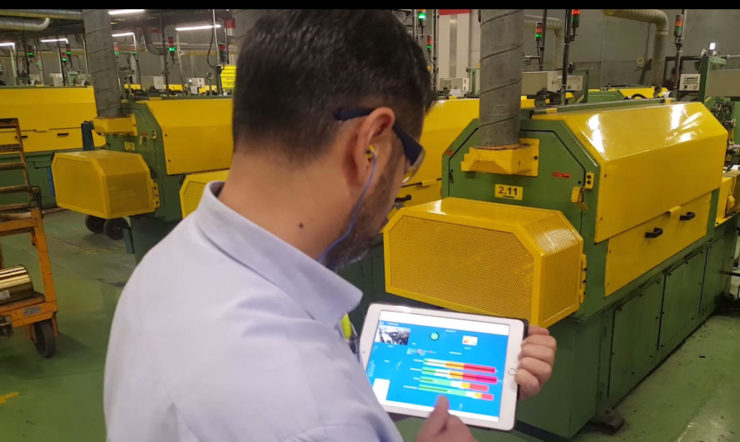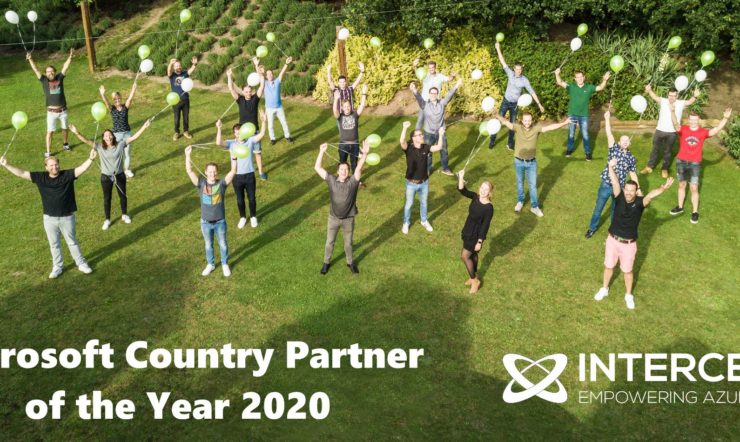The state of AI in The Netherlands
International Data Corporation (IDC), commissioned by Microsoft, conducted research among 100 Dutch leading companies to assess the status of AI. Globally, IDC engaged in conversations with 2000 organizations. The Netherlands is leading in Europe with 88% advancement in AI usage. This includes predictive AI, statistical AI, machine learning, and deep learning. The application of generative AI is also rapidly growing, with 69% of Dutch organizations utilizing it. But how do we approach the deployment of AI wisely and how do we scale up sensibly?
Download the IDC report here
Who’s doing what?
Heineken utilizes Azure Open AI Service and its built-in Chat GPT capabilities to develop chatbots for employees. The Rijksmuseum is making art accessible for everyone by exploring new AI technologies to apply in its digital transformation. ABN AMRO Bank has embraced generative AI to optimize internal processes while freeing up staff to help clients better. Albert Heijn, the number 1 supermarket in the Netherlands, has embarked on a series of initiatives focused on leveraging generative AI to combat food waste and help customers with a healthy lifestyle. This includes scanning home refrigerators to provide original recipes and additional grocery lists. While AI has existed for years, generative AI and its currently unknown applications are experiencing significant growth.
Boardroom talk
IDC encountered this trend in its research. However, organizations also face numerous challenges. A staggering 66% of organizations in the Netherlands anticipate a shortage of specialized personnel. There is a lack of digital skills within organizations to effectively utilize generative AI. Employees need training in skills such as writing the effective prompts. How do you ask generative AI the right questions?
Generative AI will likely be used soon to develop new types of AI, raising the question: will our jobs still exist? 40% of employees believe their roles will change due to generative AI. We must assist employees in reinventing themselves. It’s not just about tech.
AI is no longer just a technological discussion; it belongs in our boardrooms. How do we incorporate AI into our strategy? How do we improve our competitive position? What does it mean for Marketing, Customer Service, Human Resources, Finance? And what can a company do differently if it doesn’t have the same legacy and is starting directly with AI? Where do you start?
The 5 pillars of AI Readiness Framework
To achieve successful scaling of generative AI, the AI Readiness Framework provides guidance. It consists of 5 pillars:
1. Strategy and education: Develop a clear vision and strategy for AI implementation aligned with organizational business goals and objectives. Define desired outcomes, identify key stakeholders, and establish measurable success factors.
2. Policy and Governance: Establish a framework for building trust and accountability in AI systems. Consider regulations such as the AI Act and ethical aspects such as inclusivity, transparency, privacy, and security.
3. Culture and skills: Cultivate an organizational culture that encourages experimentation, creativity, and risk-taking. Empower employees to explore new ideas, technologies, and approaches to problem-solving with AI.
4. Data quality and management: Create a culture where data is seen as a strategic asset and is leveraged to drive decision-making and innovation. Promote data literacy among employees. Establish processes for data collection, management, and analysis. Invest in data infrastructure and governance frameworks to ensure data quality, security, and compliance.
5. Infrastructure and platform: Foster collaboration between IT and business units to seamlessly integrate AI solutions into existing workflows and systems. Regularly assess and upgrade AI technologies, platforms, and infrastructure. Do they still meet business needs? Recognize the importance of technology platforms in supporting AI initiatives.
Generative AI is already supporting millions of employees in their tasks. Work is simply becoming easier and more enjoyable, both now and in the future. Think of repetitive tasks such as summarizing documents, searching for documents, and scheduling. Many specific copilots will be developed for various industries. Therefore, don’t miss out. Discover how your organization can truly succeed with generative AI and explore in a responsible way where your opportunities lie.
























